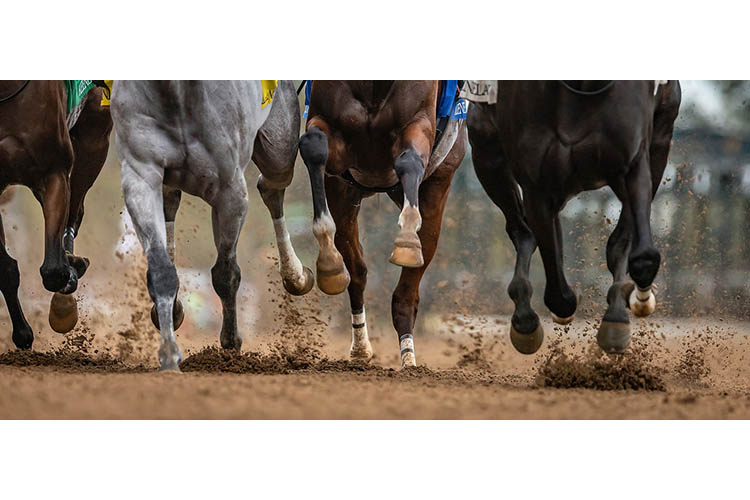Leading horseracing organizations partner with UK to support research efforts to improve surface safety
Leading horseracing organizations partner with UK to support research efforts to improve surface safety

LEXINGTON, Ky., – While 2020 has largely seen tracks closed for in-person fans, racing has continued. So have the sustained efforts of a group of tracks and industry organizations that formed a partnership early in the year to collectively support the surface safety research efforts at the University of Kentucky.
Churchill Downs, Del Mar Thoroughbred Club, Keeneland, the New York Racing Association, Inc. and The Stronach Group have pledged resources to bolster this unprecedented research initiative as part of their combined efforts to increase safety and transparency in the sport of horseracing.
The aim of this fund is to improve the safety of horseracing by supporting equine surfaces and safety research under the direction of Mick Peterson, director of equine safety and researcher in the Department of Biosystems and Agricultural Engineering in UK’s College of Agriculture, Food and Environment. Peterson joined UK’s team in 2016 and is nationally and internationally recognized for a career in track surface safety research and testing. The position of director of equine safety was created this year by the college to support the industry through the continued development of technologies to ensure safety of surfaces for racehorses and all performance horses.
“The UK College of Agriculture, Food and Environment is committed to our signature equine industry in all ways. In particular, we are dedicated to all aspects of safety in our sport,” said Nancy Cox, UK vice president for land-grant engagement and college dean. “This gift allows us to do important research to assist Thoroughbred racing and to create a pipeline of experts to serve racetrack safety.”
Since Peterson joined the UK team, much progress has been made in supporting surface safety efforts. In 2019, the National Thoroughbred Racing Association committed $100,000 to transform a large industrial research laboratory located on the UK campus. And during The Jockey Club Round Table in 2019, The Jockey Club committed to supporting the efforts of the Racing Surfaces Testing Laboratory, led by Peterson, and its ability to serve the equine industry.
“The selection and maintenance of racing surfaces has the potential to reduce catastrophic injury rates. Providing a consistent surface also helps trainers and owners make sound decisions for the welfare of their horses,” Peterson said.
Under the direction of Peterson, the lab has been particularly effective at reinforcing the welfare and safety commitment through its central testing laboratory for dirt, turf and synthetic surface materials. To date, testing has included more than 70 different racing and training tracks around the world. Equipment development from the lab includes riding crop design assessment, testing maintenance equipment and performance tests of starting gate and rail padding.
In the industry-supported role of director of equine safety, Peterson will develop a discovery research program and provide contemporary testing capabilities. Part of this vision includes establishing a national and international center of excellence for safety of the equine athlete, training the next generation of equine surface safety experts and collaborating extensively with racetracks. This collaboration will foster translational research by identifying the research and technology needs for the UK Racetrack Safety Program.
Through the support of participating tracks and organizations, Peterson’s work will help develop innovative technologies to assess track safety, working collaboratively with veterinarians, biologists and others to develop models for track surfaces that promote optimum safety and performance. This will include maintaining the precision, accuracy, integrity and interpretation of all analytical data to support the industry.
Ag Equine Programs Research

